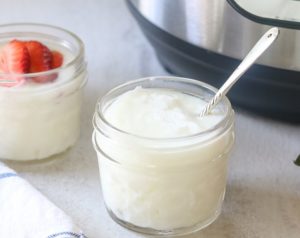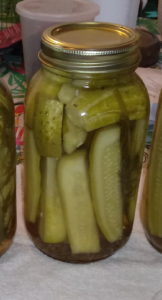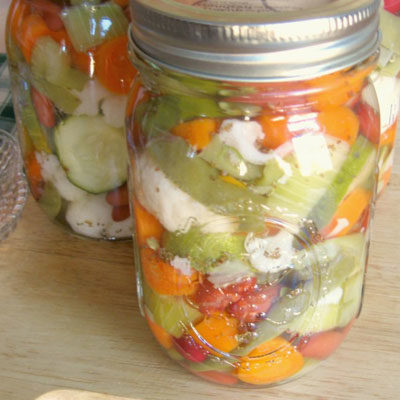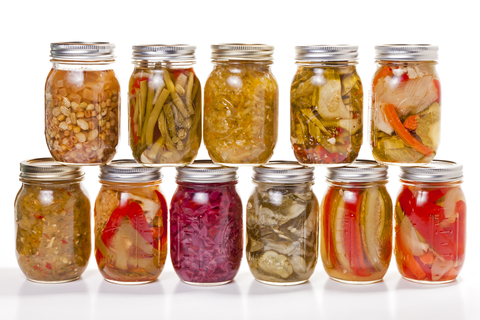Today is Health Tuesday. I am designating different days of the week for writing topics. This is mainly because I have been neglecting this page and need to encourage myself to keep on keeping on.
 Today’s advice comes to us from a book I am reading: Eat Well, Move Well, Live Well by Roland and Galina Denzel. It is a wonderful book of good natural health advice. Unlike other books, this is not necessarily read cover to cover. At the end of each chapter, it suggests different chapters to move on to. So expect some of these random topics to end up here. If you are interested in the book, the picture is linked to Amazon for you to purchase.
Today’s advice comes to us from a book I am reading: Eat Well, Move Well, Live Well by Roland and Galina Denzel. It is a wonderful book of good natural health advice. Unlike other books, this is not necessarily read cover to cover. At the end of each chapter, it suggests different chapters to move on to. So expect some of these random topics to end up here. If you are interested in the book, the picture is linked to Amazon for you to purchase.
From Chapter 17 – Ferment Your Foods
One of those Lost Ways that modern society has forgotten is the food preparation technique of fermentation. And I say forgotten mostly because most of us do not prepare and store our foods. We buy it by the cans or fresh from the store, because we can. But by forgetting about it, we also have lost the knowledge of a very powerful source of nutrition.
Yogurt
Of these, the least understood in importance is that of Yogurt. Yogurt replaces healthy bacteria in your gut. This should be done just because – helping your basic digestion. But it becomes a magic health food source when your gut is under attack. This happens for many reasons. But most often we see it when we are on antibiotics. Usually you take these to help you fight off other diseases. But they also kill off some of the good bacteria that help your digestion process.
 I found out a lot about this a few years ago when I ended up in the hospital after I was bitten by a spider. I was on heavy antibiotics for 3 weeks, which caused a variety of problems (diarrhea). In addition to eating a lot of greek yogurt, I also took the advice of a friend, Sol Luckman. He suggested making my own Kefir.
I found out a lot about this a few years ago when I ended up in the hospital after I was bitten by a spider. I was on heavy antibiotics for 3 weeks, which caused a variety of problems (diarrhea). In addition to eating a lot of greek yogurt, I also took the advice of a friend, Sol Luckman. He suggested making my own Kefir.
Kefir is yogurt-like variation that is a regular staple in other parts of the world – especially the Middle East. I drank it for about 2 weeks. It is thinner than yogurt, but thicker than milk. The taste (depending on how you flavor it, is like stronger, not name brand yogurts.
I also have used yogurt (primarily plain Greek yogurt) while on cleansing diets. It can be eaten plain (yuckish), added to smoothies, substituted for mayonnaise. The list is endless. I liked smoothies, made with Greek Yogurt, coconut milk, fruit, and sometimes honey.
Probably the best takeaway I have gotten from eating yogurt is to STAY AWAY FROM PROCESSED YOGURT. Yoplait, Danimals, Activia, and Go gurt ARE NOT FOOD. They are so filled with sugars, colors flavors and the like that they cease to be indentifiable as food.
 Vinegar
Vinegar
Vinegar used to be an absolute staple in all kitchens. Its uses range from being a base for salad dressing to a perfect substitute for Cascade in your dishwasher.
For fermentable foods, here is where you find your pickles, sauerkraut and Kimchi. If you have been following Astrogardens, earlier this summer, we pickled the cucumbers from our garden. As we found, early on, the recipe was pretty sour. As they sat, the tartness has settled somewhat and made the pickles a tasty treat.
Another pickled substance we see here in Pennsylvania is called Chow Chow. To make it, you put a bunch of vegetables in a jar and put a sugared vinegar solution over it. Frankly it is repulsive. But if you think about it, this was a great way for farmers to preserve a lot of vegetables that they would not otherwise use. It has carrots, celery, cucumbers, carrots, cauliflower, tomatoes.
Apple Cider Vinegar
I discovered the magic of ACV back in about 2010. I was looking for a natural cure for allergies. Two books I was reading at the Time (The Vinegar Book and Natural Cures “They” Don’t Want You to Know About) extolled the use of ACV to help. So I decided to try it out.
<PUBLIC SERVICE ANNOUNCEMENT – THIS IS NOT A CURE AND I AM NOT SUGGESTING YOU USE THIS AS A MEDICINE. I am not a doctor and not part of the CDC and cannot recommend anything as a cure>
3 times per day, you drink 1-2 Tablespoons of ACV. You can try this plain if you are brave. But it is pretty intense. i usually add it to a glass of water or in ginger ale or 7up.
For the sake of my allergies, I stopped taking my antihistamine (generic Claritin) or using my albuterol inhaler during this test.
RESULT: Within a few days, my nose was not stuffy, my eyes were not red and runny, I did not have shortness of breath.
Since then, I have not taken ANY over the counter medicine for allergies. I still take ACV, but not every day.
The chapter ends with offering advice on going forward. I will list them with my own advice as well.
- Yogurt. Try some in the next week. What can it hurt. If you are even more adventurous, try making some at home.
- Other Fermented Foods. Try something new this week. Will it be pickles? Kombucha? Go out on a limb and buy some Chow Chow? Maybe something more than just an olive in a martini.
- Books. Check out a book on Fermentation. I suggest The Vinegar Book. But you may also want to look into both Eat Well, Move Well, Live Well and Natural Cures “They” Don’t Want You To Know About

Thanks for sharing, and I’m happy you like our book!
Is chow chow sweet? Maybe that’s why you don’t like it.
Out here in So Cal, we have escabeche, not chow chow, but it’s similar, although often spicy. The best ones are fermented, not pickled, but they can be hard to find in stores. Both versions are good.
Roland
Chow Chow is made sweet. Always looked like vomit to me.
I think I will follow this up with a long list of pickled foods that are out there.
Thanks
I’ve been fermenting for quite a few years since I found Wild Fermentation by Sandor Katz, he has a webpage, too, and a search will lead to audios/videos as well. Really gives a great boost to digestion and such! Glad to see you back on the blog 🙂
Thanks Janet. I will check out the book!
That photo you have of ‘chow-chow’ doesn’t look anything like Southern chow-chow. Looks more like Italian Giardiniera (pickled veggies). Southern chow-chow is more of a pickled relish where everything is chopped/shredded finely and all mixed together. It can be hot or sweet, or both – depending on whose Grandma’s recipe you’re using. And it’s not at all disgusting 🙂
Excerpt from “Southern From Scratch” by Ashley English
“A type of pickled relish, chow chow has about as many permutations for making it as there are vegetables to fashion it out of, though cabbage does appear rather consistently. It has been a part of the southern Appalachian culinary canon since the early 1800’s, its multi-purpose “soup pot” nature making it a popular means of using up any available vegetable. Alongside variation in ingredients used, chow chows also differ in their relative levels of sweetness, some being considerably sweeter than others. The one I’m offering here is neither too sweet nor too sour, but very “Goldilocks” in its right-in-the-middle level of sweetness.
The etymology of the term “chow chow” is itself in dispute. Some believe it hails from the Chinese word “cha”, meaning mixed. Others argue chow chow stems from the Indian word for chayote squash, a common ingredient in a popular Indian pickle. Another viewpoint claims an association between the French and their word for cabbage, “chou” as having ties to chow chow. Wherever the word stems from, the condiment of finely chopped vegetables mixed with vinegar, sugar and spices has been associated with southern cooking for over 200 years.
Those maintaining the Chinese origin of the word believe it made its way to the U.S. via Chinese immigrant laborers in California. The European lineage claim links chow chow to the Acadians of Nova Scotia, who brought it with them during their migration south to Louisiana. However it ended up in the south, it stuck once it appeared on the culinary scene and can now be found in kitchens, pantries, and restaurants across the region.”
recipe here: http://www.smallmeasure.com/chow-chow/
Thank you James for the info on Southern Chow Chow. From here, my yuck story is about Pennsylvania Dutch Chow Chow. I will stick by the gross comment for that. But it sounds like I need to broaden my palette. I did not comment about Sauerkraut or Kimchi, both of which I avoid because I am not a cabbage fan.